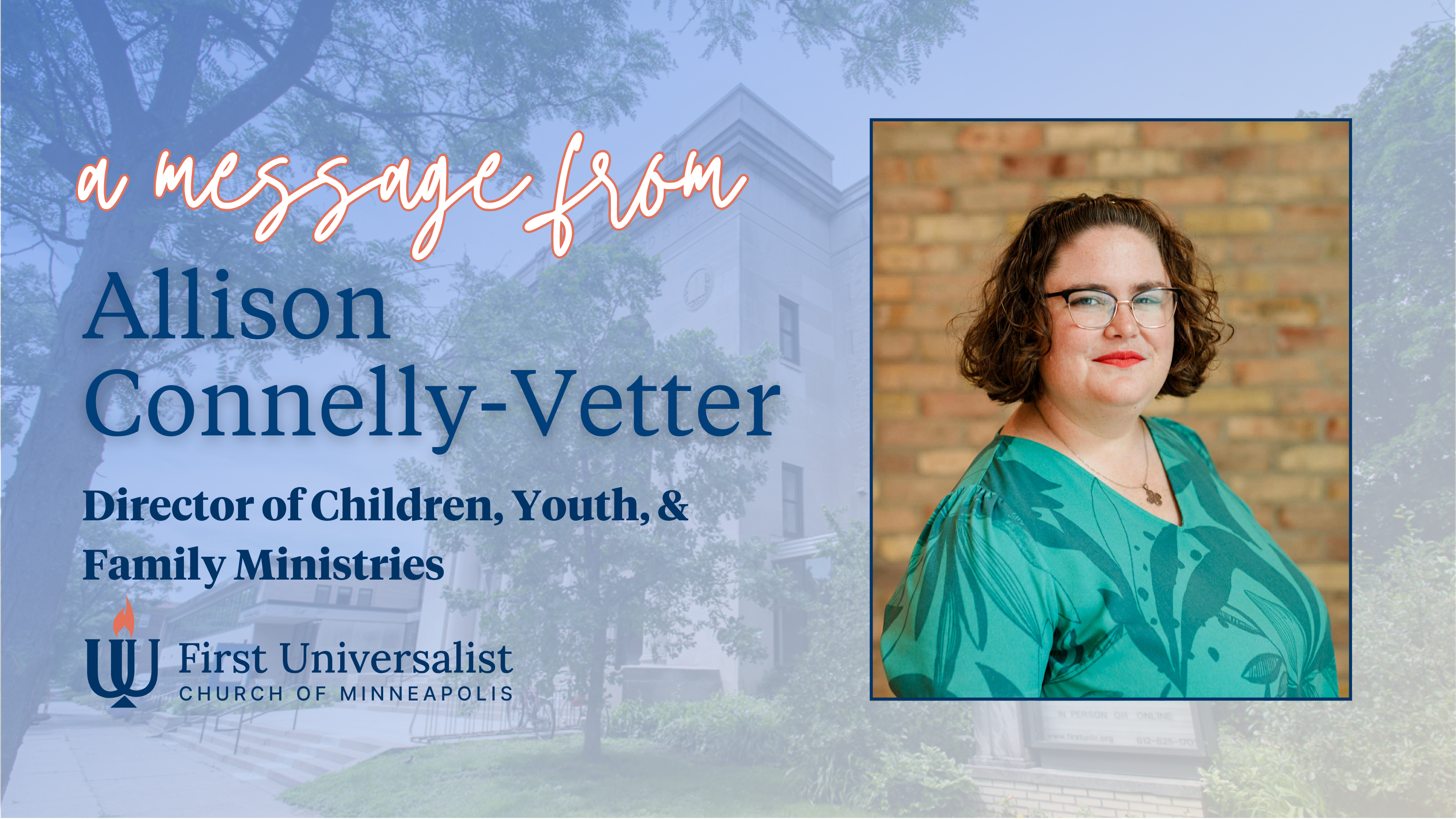The kids are more than alright.
News –

I returned from our high school youth group retreat this past Sunday very tired, very smelly, and very grateful.
We had our mishaps: a coffee emergency; a failed homecoming proposal; endless mockery of my attempted use of Gen Z slang; and some unenthusiastically received 2 a.m. bed checks. Most memorably, a nest of wasps overtook our cabin (and a few of us got stung), so we moved most of our crew and belongings across the camp halfway through the weekend.
But most importantly, we had the sweetest, funniest, most welcoming group of kids. They were so authentically kind to each other and to us as adults. They were honest and insightful and caring. They supported each other and cheered each other on, and went out of their way to help their peers have a positive experience. They were entirely content to play and sing and eat and rest and tell ghost stories (but NOT to sleep). I can’t tell you how many times I was genuinely thanked by teenagers this weekend—more than I’ve been thanked by a group of adults in a long time.
It stood out to me on this retreat especially how much these kids yearned for safe, curious, grounded connections with adults. I learned as much about homecoming gossip as I did about really tough family situations. I listened to young folks tell me how they were struggling to support their friends in crisis, how they were thriving in their new tap dance class, and a very long list of surprising science facts that they had saved in their phones for such a time as this (did you know Australia is wider than the moon? I didn’t.) We wondered together if you can separate the art from the artist, how to ask for help, and whether any people are purely good (my car’s consensus answer: only Anthony Edwards).
Here’s what I want you to know: the kids are more than alright. They are brilliant. They are heart-shatteringly good. They are sparkling images of the divine disguised in lake-soaked hoodies and Batmobile crocs. They are making this hard world better simply by choosing to stay in it.
And they need us—safe, curious, grounded adults—to be their backstops, their companions, their witnesses, their checks. They need us not to be their friends or their idols, but to be most fully ourselves, most fully present, giving them in turn permission to be the same.
May we all be who we needed. May we all be who we’ll need. And may we all be for others what they cannot—were not—will not be for themselves. Together, we are whole.